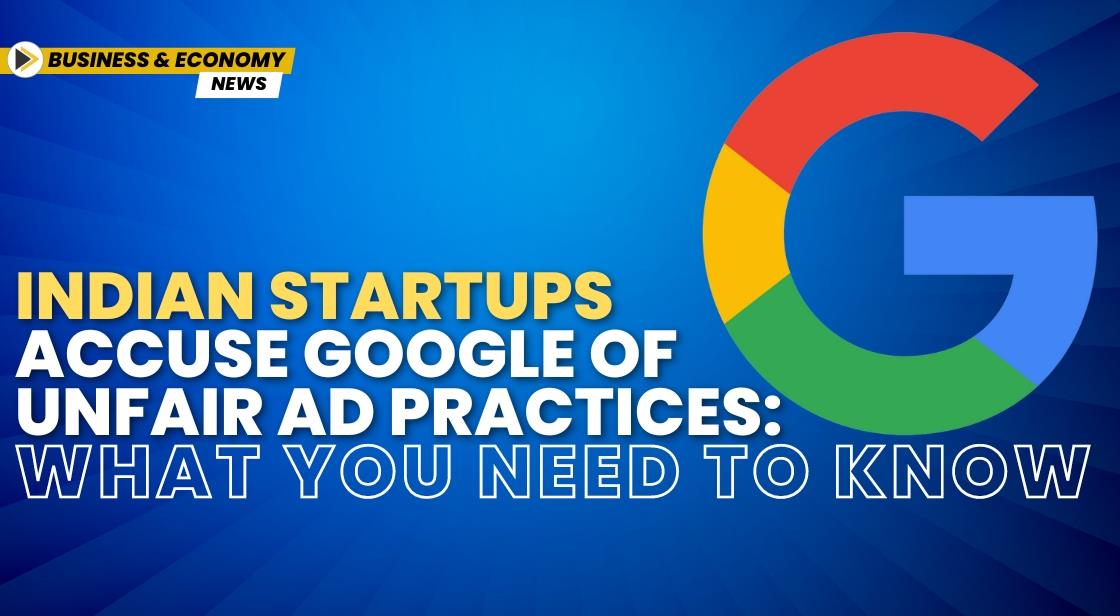Indian Startups Accuse Google of Unfair Ad Practices: What You Need to Know

News Synopsis
The Alliance of Digital India Foundation (ADIF) has formally lodged a complaint with the Competition Commission of India (CCI) on August 5, accusing Google of engaging in unfair practices within the online advertising sphere. As reported by The Economic Times, ADIF—a policy think tank dedicated to supporting Indian startups—has raised concerns about Google’s overwhelming control over online search and display advertising.
ADIF Files Complaint with CCI Against Google
Key Allegations Against Google
ADIF's complaint brings to light several critical issues regarding Google’s advertising operations. The think tank criticizes Google’s dominance and its “black-box approach” to ad ranking, which, according to ADIF, leaves advertisers in the dark about their spending. Prateek Jain, Associate Director of Startup and Alliances at Alliance of Digital India Foundation (ADIF) , underlined the necessity of a fair digital advertising market for fostering growth among Indian startups.
He highlighted that the complaint is intended to promote fairness, transparency, and healthy competition in this crucial market.
Specific Issues Highlighted by ADIF
ADIF’s complaint points to multiple problematic practices:
-
Search Advertising: ADIF accuses Google of implementing unfair ad policies, lacking transparency in ad rankings, and inflating ad prices through trademark keyword bidding.
-
Display Advertising: The think tank alleges that Google’s control over the ad tech ecosystem and its preference for its own services limit competition and stifle opportunities for other players.
ADIF asserts that addressing these issues is crucial for the health of the startup ecosystem and the broader digital advertising landscape in India. They are calling on the Competition Commission of India (CCI) to investigate and rectify Google’s alleged practices.
Recent Developments in Google's Legal Battles
Federal Judge Rules Google Holds Illegal Monopoly
In a related development, a federal judge has recently determined that Google holds an illegal monopoly in the search and text advertising markets. This decision, which marks a significant milestone in tech industry regulation, is the first anti-monopoly ruling against a tech giant in decades.
The landmark case, initiated in 2020, argued that Google perpetuated its dominance in the search market by creating entry barriers and establishing a self-reinforcing feedback loop. The court concluded that Google’s practices contravened Section 2 of the Sherman Act, which prohibits monopolistic behavior.
Judge Amit Mehta of the US District Court for the District of Columbia stated, "Google is a monopolist, and it has acted as one to maintain its monopoly."
Court’s Focus and Market Implications
The court’s ruling centered on Google’s exclusive agreements with Android and Apple’s iOS devices, which were found to reinforce its dominant position. The decision identified two main markets: general search services and general search text advertising. While the court found that Google monopolized both markets, it noted that general search advertising does not constitute a separate market, thus excluding it from monopoly control.
Attorney General Merrick Garland hailed the ruling as a "historic win for the American people," emphasizing that no company is above the law. In response, Google’s President of Global Affairs, Kent Walker, announced plans to appeal, arguing that while the court acknowledged Google’s superior search engine quality, it restricted its availability.
Following the ruling, Alphabet, Google’s parent company, experienced a more than 4 percent drop in its shares amidst a broader decline in global stock markets.
Conclusion
The recent complaint filed by the Alliance of Digital India Foundation (ADIF) against Google highlights significant concerns regarding the tech giant’s advertising practices. ADIF’s allegations of unfair practices, including a lack of transparency and dominance in both search and display advertising, underscore the ongoing challenges in the digital advertising landscape. By urging the Competition Commission of India (CCI) to investigate, ADIF aims to ensure a more equitable and competitive market environment for Indian startups.
In a related development, a federal judge’s ruling in the United States has further intensified scrutiny of Google’s market practices. The court's determination that Google holds an illegal monopoly in the search and text advertising sectors marks a pivotal moment in the regulation of tech giants. The ruling's focus on Google’s exclusive agreements and its impact on market competition reflects broader concerns about the influence of major tech companies.
As both regulatory bodies and the tech industry grapple with these issues, the outcomes of these legal battles will likely have far-reaching implications for digital advertising practices and market competition. The resolutions of these cases will be crucial in shaping the future landscape of online advertising and ensuring fair practices within the industry.
You May Like









